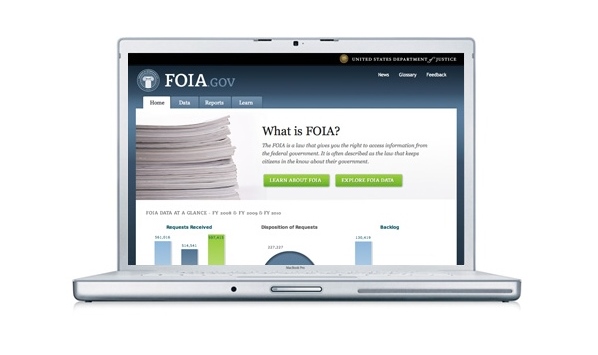An anniversary you may have missed
With the acrimonious standoff in Congress bringing about the first federal government shutdown in seventeen years, one can’t help but feel deep frustration and disappointment with our elected officials.
At the beginning of a new fiscal year, we aim to look forward with optimism and faith in the direction of our government. Instead, we find ourselves observing playground bickering and refusal to compromise on critical issues—a bitter tug-of-war that puts a damper on any hopes of progress.
Unfortunately, this soap opera of unwavering partisanship in Washington overshadows the first anniversary of something very much worth celebrating: the launch of the online government transparency tool, FOIAonline.
A year after its initial launch, FOIAonline remains a dynamic concept that sets a great example for states to observe and replicate. The web portal allows citizens to submit requests through an online form and then track the processing history of each request, similar to the way one would track a package through a shipping courier webpage. You can use the web portal as either a guest or registered user, with registered users having access to a wider range of functions and privileges such as regular notifications and direct communications with the agency all at points of the FOIA request process.
The original group of agencies participating in the system includes the Department of Commerce (except the US Patent and Trademark Office), Environmental Protection Agency, Federal Labor Relations Authority, Merit Systems Protection Board and the National Archives and Records Administration’s Office of General Counsel. Since December 2012, this list has been expanded to include the following:
- Departmental Offices (headquarters),
- Alcohol and Tobacco Tax and Trade Bureau,
- Bureau of Engraving and Printing,
- Bureau of the Fiscal Service,
- Financial Crimes Enforcement Network (FinCEN), and
- United States Mint.
Of course, the tool is not without its flaws. For one, the list of participating agencies is a very small fraction of what the module’s designers were hoping for at this point. After a year of activity, the lack of willingness of other agencies to join is disappointing. In an era of unprecedented mistrust of federal agencies—think of the outrage over the NSA surveillance program—the lack of willingness of the vast majority of federal departments to join this transparency endeavor only generates more skepticism of and alienation from the federal government.
Does Massachusetts offer a comparable online tool? The short answer is no—at least, not yet. With FOIA service providers like MuckRock hounding the Commonwealth for public records, you would think that Beacon Hill would make it a priority to generate a simple means of submitting and tracking records requests electronically. One estimate from the EPA put projected savings from FOIAonline at $200 million over a five-year period, assuming government-wide implementation. It stands to reason that Massachusetts would certainly reap fiscal benefits from developing a similar tool for its residents—something members from both sides of the partisan spectrum can appreciate.
U.S. Supreme Court Justice Louis Brandeis once expressed that state government can serve as an important environment for policy experimentation. As “laboratories of democracy”, states offer an opportunity to gauge the effectiveness of innovative proposals without subjecting citizens beyond the state’s borders to the risks associated with pursuing new policy directions. In the era of e-government and online transparency, the federal government has in this instance taken on the role of the laboratory—or, has at least taken the initiative. With the unprecedented divisiveness among our public officials at the moment, FOIAonline reassures us that there is still some hope in what government can do.



